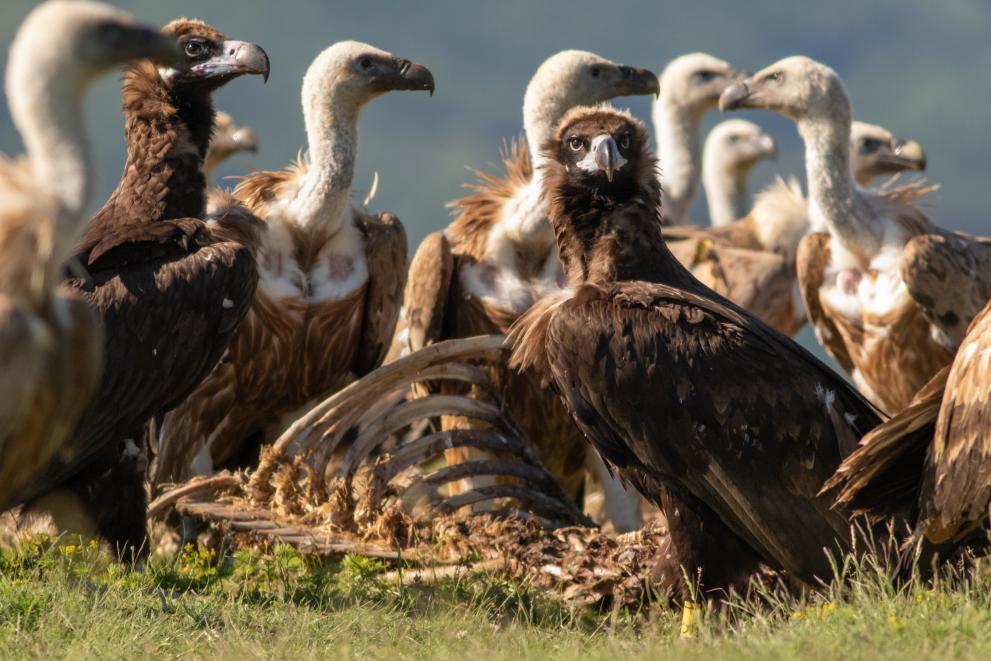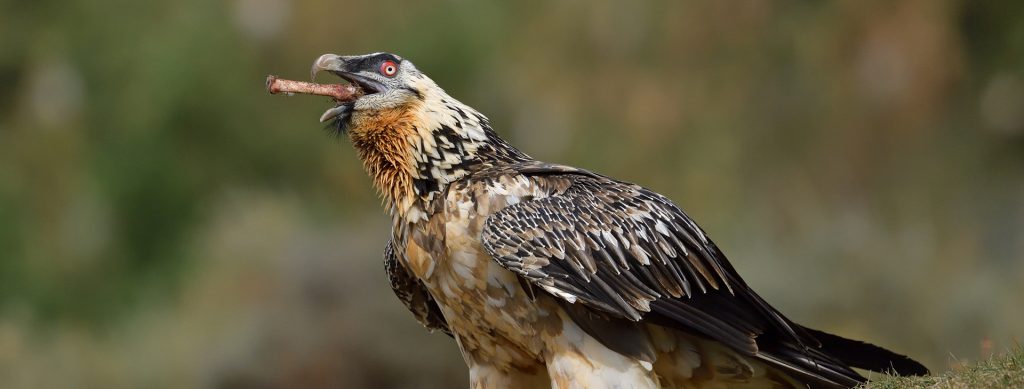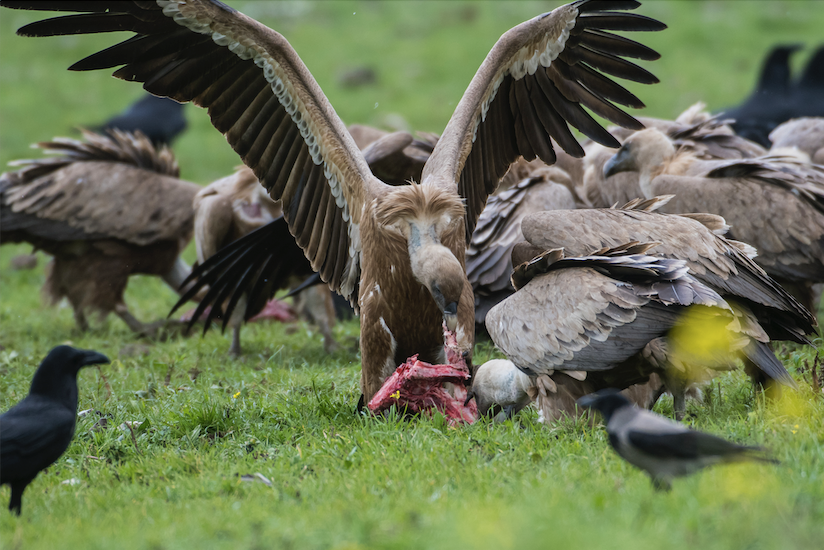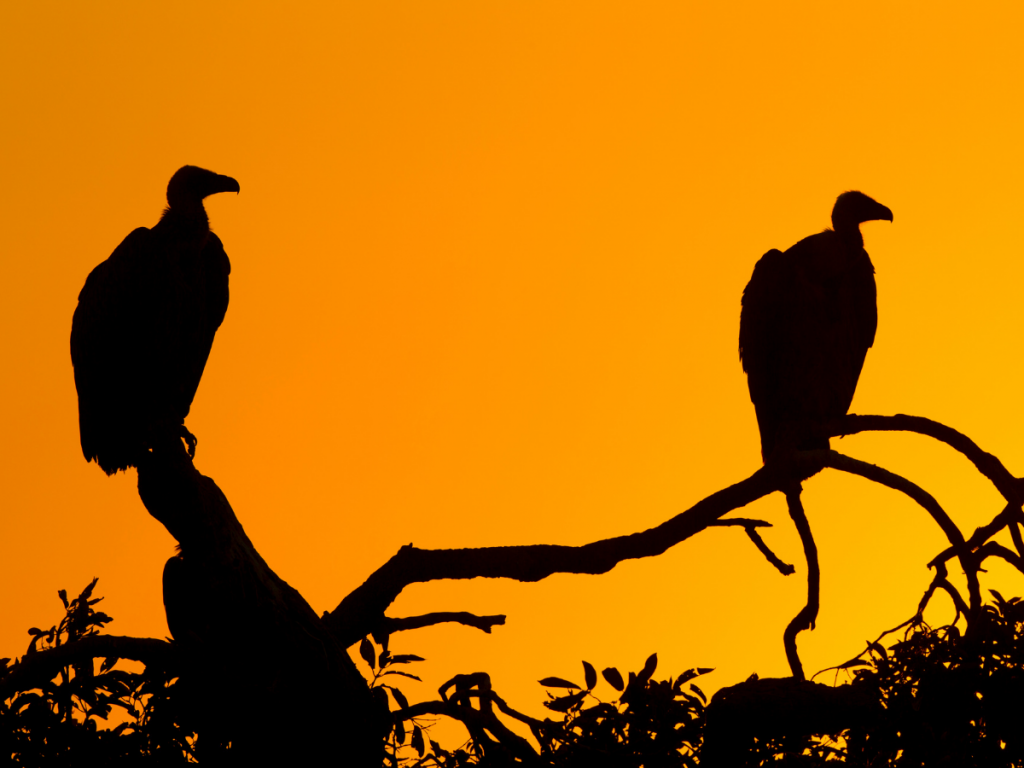Vultures are amazing: they are some of the heaviest flying birds in the globe, have incredibly strong stomach acids to digest carrion (and bones!), can endure long-distance foraging flights every day, have amazing sights (and some in the Americas can even smell). Most importantly, they are essential to our life on Earth. How do vultures contribute to a healthier planet?

Vultures likely prevent the spread of diseases
As scavenger birds, vultures do not hunt for live prey. They have several adaptations that make them the masters of locating, identifying and digesting carrion. Their efficient carcass disposal service can help control the population of predators, such as feral dogs, which might be pathogens of diseases. Thanks to their powerful digestive system, they can break down the toughest rotting meat, even from diseased animals. For instance, Bearded Vultures’ highly acidic stomach (pH less than 1) are even capable of dissolving and digesting bones!

By removing dead animals from the environment, they likely reduce the risk of disease outbreaks, which can be transmitted by decaying or infected carcasses. hey also act as “sentinels”, sounding the alarm for environmental health problems and cases of illegal poisoning. When a GPS-tagged vulture falls victim to poisoned carcasses, local teams can give a swiftly response: check the area, remove the poisoned bait and prevent further damage to wildlife and the environment.
Vultures maintain important ecosystem services
By consuming large amounts of carrion from animal carcasses, they release nutrients back into the soil, promoting the important nutrient cycle and energy transfer through food webs. Apart from controlling the spread of diseases, vultures also promote the removal of soil and water contaminants.
In many EU countries, livestock producers are required to remove all carcasses from the field, a measure that aims to contain the risk of disease spread. The carcasses for disposal are collected by a special transport and directed to a processing plant, inflicting costs to livestock producers. If the carcasses could be disposed in the nearest vulture feeding, greenhouse gas emissions associated with the transport and carcass processing could be avoided, along with the financial costs of the operation. And would ensure food availability for Europe’s vulture species, many of them critical endangered.

Vultures bring happiness and wellbeing
There is a growing body of evidence revealing the benefits of being out in nature. The experience of the natural world has a direct impact on humans’ physiological and mental health. A 30 minutes-walk outdoors on five days can reduce the risk of heart attack, stroke, diabetes, hip fractures and breast cancer. Contact with nature in scenic landscapes make us happier, can help reduce stress, improves mood and self-esteem, helps to regulate sleeping patterns and decreases the symptoms of depression.
The effects of birding, in special, have been recently analysed too. Time-lasting improvements on wellbeing and the restorative effect of bird sounds on stress recovery were also reported. When you go out to spot your favourite vulture species and immerse yourself in nature, you are directly benefiting from many efficient and cost-effective physical and mental benefits. With stress hormones lowered down, you will feel calm, restored and reenergized.
Vultures provide cultural and spiritual services
Every year, thousands of bird enthusiasts travel the globe to watch species in their natural habitats. Ecotourism, mostly in the forms of wildlife watching and photography, provide important sources of local income and can boost economic development. Vulture watching around breeding areas and feeding sites are extraordinary experiences, that will certainly be remembered
For thousands of years, vultures have been worshipped across the globe, full of symbolism and meanings. In Egypt, for example, vultures were often associated with maternity and compassion as they believed vultures were devoted mothers (which is true). In Tibet, vultures are seen as a means to free the soul of those who pass away and the chance for another life and across many South American countries, the Andean Condor (a New World Vulture species) symbolised the sun god and were considered to be the rulers of the sky.

How can we contribute to healthier vulture populations?
On Earth Day, we’ve seen how vultures play an important role in maintaining healthy and balanced ecosystems. They restore ecological functions, essential for the wellbeing of both humans and wildlife. By contributing to disease control, nutrient cycling, environmental quality, and cultural and economic values, vultures can help to create a healthier planet for all. But how can we contribute to healthier vulture populations?
The Vulture Conservation Foundation, with the support and engagement of many partner organisations across the globe, is committed to safeguarding vulture species in Europe. Find out more about our captive-breeding, restocking and reintroduction programmes and monitoring efforts. Together, we make research and conservation walk hand in hand, and ensure targeted species’ projects in several countries.

You can help vultures too!
You can directly support our conservation efforts with a donation. Share this article to raise awareness about the importance of vultures and help us promoting their positive image! And don’t forget to sign up to our newsletter to receive our news directly in your email inbox, or follow our updates on social media platforms.